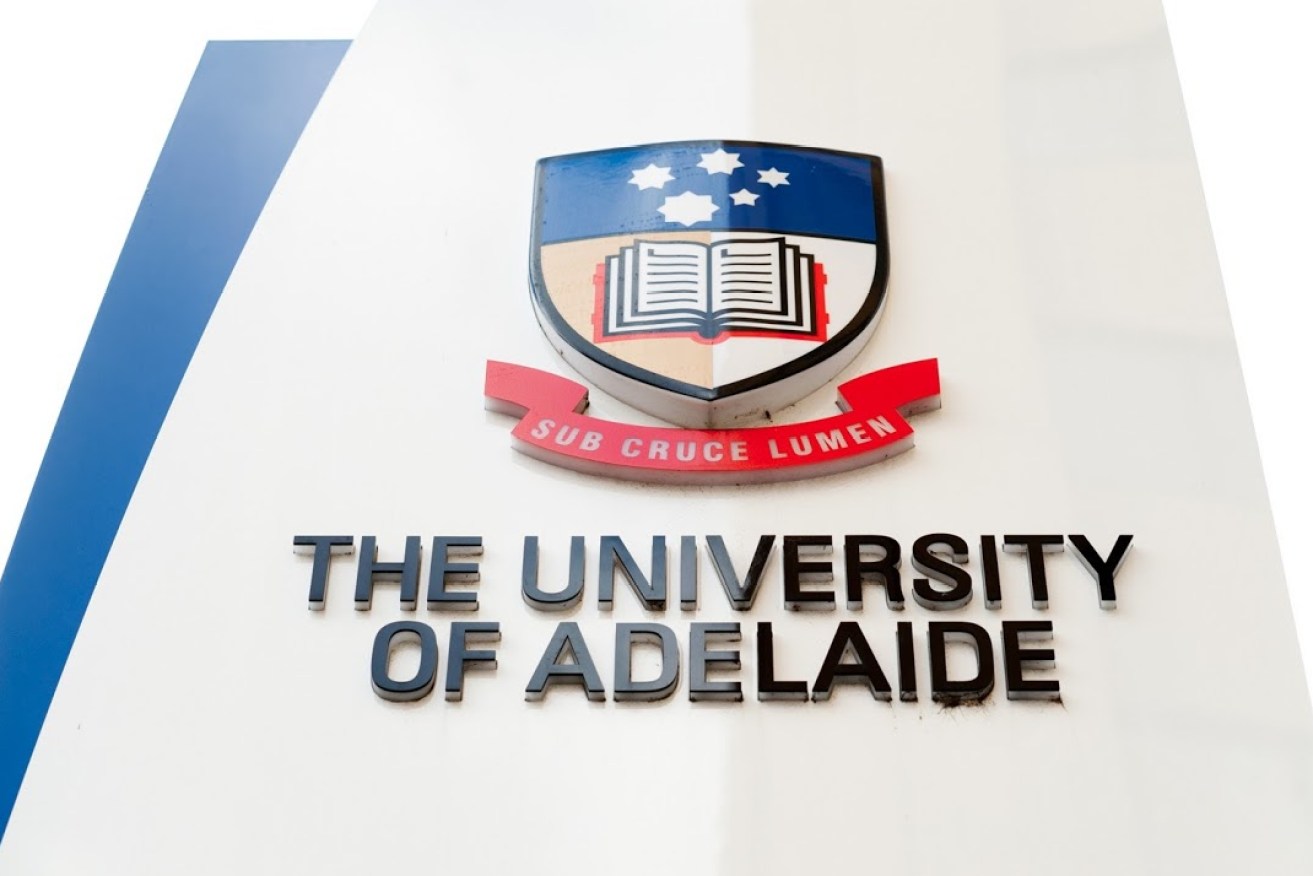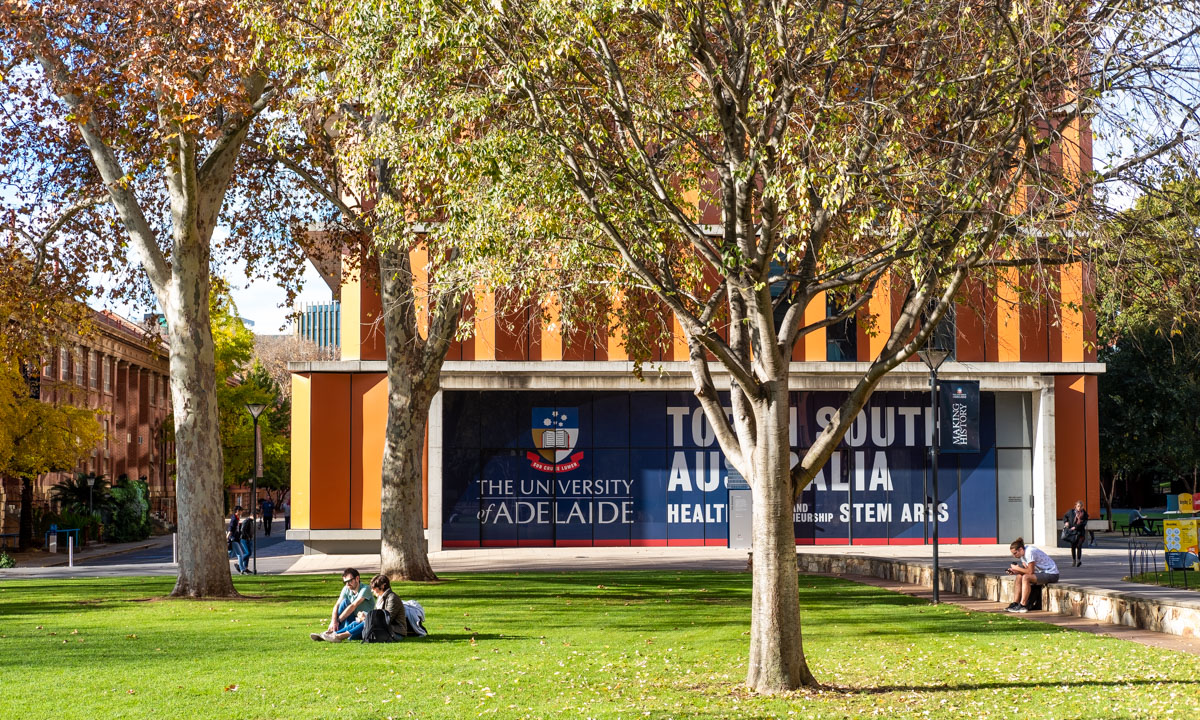Adelaide Uni to set up ‘Integrity Unit’ after scathing harassment report
The University of Adelaide will introduce an Integrity Unit and mandatory training on “behavioural expectations and inappropriate behaviours” after an independent inquiry found staff and students wanting to report bullying, sexual harassment and assault did not trust its systems.


Photo: Nat Rogers/InDaily
The university today revealed its response to a published KMPG report, “Towards a safer and more inclusive future“, commissioned after the Independent Commissioner Against Corruption made a statement last August finding former Vice-Chancellor Peter Rathjen guilty of misconduct after sexually harassing two women.
Rathjen took leave in May and resigned in July, before the ICAC findings were revealed.
Then-Commissioner Bruce Lander found that Rathjen had touched two of his female staff members in a sexual manner at a work function and later lied about his behaviour to both then-Chancellor Kevin Scarce and the ICAC.
The University of Adelaide paid Rathjen more than $600,000 – including a $326,400 contract payout – after accepting and later paying out a compensation claim from one of the women when she resigned.
A follow-up ICAC survey of university staff and students found widespread allegations of bullying and harassment and concerns about reporting them.
The university commissioned external consultants KPMG to undertake an independent inquiry and report, with work beginning in November on obtaining feedback from more than 600 staff, students and alumni.
There were multiple examples of lived experience of breaches in confidentiality, with extreme examples of victims being intimidated and threatened by the alleged offender
In detailing the responses and its 22 final recommendations, KPMG said an Integrity Unit should be set up as there “was a need for a reporting option which was independent of existing functions and reporting lines”.
“With low levels of trust in existing reporting mechanisms at the University, an independent option would assist in breaking down barriers to reporting. Similarly, the lack of care and support for victims would suggest the need for a case management function that can provide continuous support throughout any reporting process,” the report found.
KPMG said that both staff and students had “expressed a fear that a report will not be taken seriously, or that the behaviour itself is not serious enough to report”.
Many participants fear that they will not be able to finish their degree in the event they make a formal report
Further, “fear of victimisation is a strong barrier to reporting, with nearly half of staff participants and approximately one-third of students participants expressing that fear of victimisation is a substantial barrier to reporting”.
“Staff participants gave feedback that they were fearful of the impact reporting may have on their career progression, and that staff in contract roles had a heightened concern of job loss or reduction in shifts,” the report said.
“Feedback from some international students was that the lack of clarity on what is considered inappropriate behaviour in Australia was a barrier to reporting, as well as fear of not being eligible to complete their PhD or having their visa revoked as a consequence of making a report.
“Broader consultation highlighted that many participants fear that they will not be able to finish their degree in the event they make a formal report.
“Some participants indicated that they feel unsafe on the University campus, with staff providing examples of working from home, taking sick leave, or avoiding areas due to the fear of encountering the alleged offender. To a lessor extent, students who participated in the consultation process also referenced examples of their personal efforts to avoid encountering the alleged offender, including shifting classes of their own accord.”
Reporting sexual harassment or assault to management was also an issue: “Nearly no participants felt they could comfortably approach the alleged offender about the behaviour if that individual were in a position more senior to their own,” the report said.
“Victims are encouraged to report to a manager; but where the alleged offender is in a more senior position, the manager will often also have a relationship with the alleged offender – including but not limited to friendship or they share a line management arrangement.
“Feedback was provided throughout the engagement with the University community that this creates a barrier for the victim to actually make a report as victims assume their manager will not be willing or able to do anything, or where a report is made, the manager may feel limited in the action they can take as they too fear victimisation.
“Participants in the consultation process felt that managers lack confidence in taking appropriate action as they are provided with little to no training on managing these behaviours and often do not feel they would be supported to take action.
“A consistent suggestion from both staff and student participants was the need for an independent reporting option to be made available, as options to reporting are limited when the victim does not feel comfortable making a report to a direct manager or faculty member.”

Photo: InDaily
Confidentiality of reports was also a serious issue, with respondents seeking clarity on access, storage and policies to protect privacy and confidentiality.
“The feedback raised in relation to where a victim’s manager has a line management relationship with the alleged offender, was also linked by participants to a fear that reports would not be kept confidential,” the KPMG report found.
“During the engagement with the University community, there were multiple examples of lived experience of breaches in confidentiality, with extreme examples of victims being intimidated and threatened by the alleged offender.”
Further, “a number of student participants stated in their feedback that they did not receive support from the University and had to continue their study alongside the alleged offender”.
Participants also “shared their frustration in trying to navigate the University’s website, advising that information is difficult to find and many policies and procedures are not contemporary and require several documents to be found and read”.
The only acceptable number of cases is zero
The report also said the current University protocols “put emphasis on the victim to solve the problem”.
“Multiple examples were provided where the only option for resolution offered by HR was ‘mediation’ with the alleged offender, which was often distressing for the victim,” it said.
“Many participants who had experience of the reporting and investigation process, both as victims and alleged offenders, expressed that they have experienced psychological harm as a result. In this sense, it was made clear that from the perspective of a victim, there seems to be no positive outcome for making a formal report.”
In a statement, University of Adelaide Vice-Chancellor and president Peter Høj, appointed in February, said sexual assault, harassment and other inappropriate behaviour was found across society – including the higher education sector.
“This behaviour is not acceptable in our society, and there is no place for it here at the University of Adelaide. The only acceptable number of cases is zero,” he said.
“The KPMG Australia report has found underlying problems with the University’s culture, with some students and staff saying they did not feel safe to report sexual assault, sexual harassment and other inappropriate behaviour. Others have said that their experience of reporting has left them unhappy with how the matter was handled, and some of them were distressed.
“As Vice-Chancellor, I want to take this opportunity to apologise to victims of sexual assault, sexual harassment, or other inappropriate behaviour occurring at the University of Adelaide.
“While we recognise that not all of our students and staff will necessarily feel the same way, or have had the same experience, we are listening to these voices in our community, and they are telling us we need to do better. These issues need to be addressed. We will and must do better.”
Høj said the university council has also made a formal apology to victims and endorsing the decision to “unreservedly accept” all 22 report recommendations, with five prioritised for immediate action:
- Develop leadership capabilities to lead change.
- Introduce recurring ethics and integrity training for all staff.
- Establish an Integrity Unit – to which students and staff can report sexual assault, sexual harassment and other inappropriate behaviour.
- Review the University’s Human Resources (HR) function and capabilities.
- Streamline and update the University’s policy framework for sexual assault, sexual harassment and misconduct.
Professor Katrina Falkner, chair of the university’s ICAC Response Steering Committee, said the KPMG report and the committee’s own work allowed the opportunity to change university response to such issues.
“The report’s recommendations have addressed all of the issues raised by ICAC, but the University also asked KPMG Australia to go beyond the scope of what ICAC had recommended,” she said.
The new Integrity Unit will have the authority to investigate misconduct reported to it by students and staff, according to university rules, policies and staff conditions of employment.
“Importantly, the new Integrity Unit will provide victims with a single, continuous point of contact, working with them to ensure a victim-centric approach, providing tailored support options, and keeping them updated on the progress of any investigation,” Falkner said.
“The establishment of an Integrity Unit, and revising our policies and processes, will bring positive and lasting changes, helping our students and staff to feel safe and supported in making a report. This will enable us to build a stronger, more supportive culture for the benefit of everyone at our University.
“We also recognise that changes to culture will take time.”




